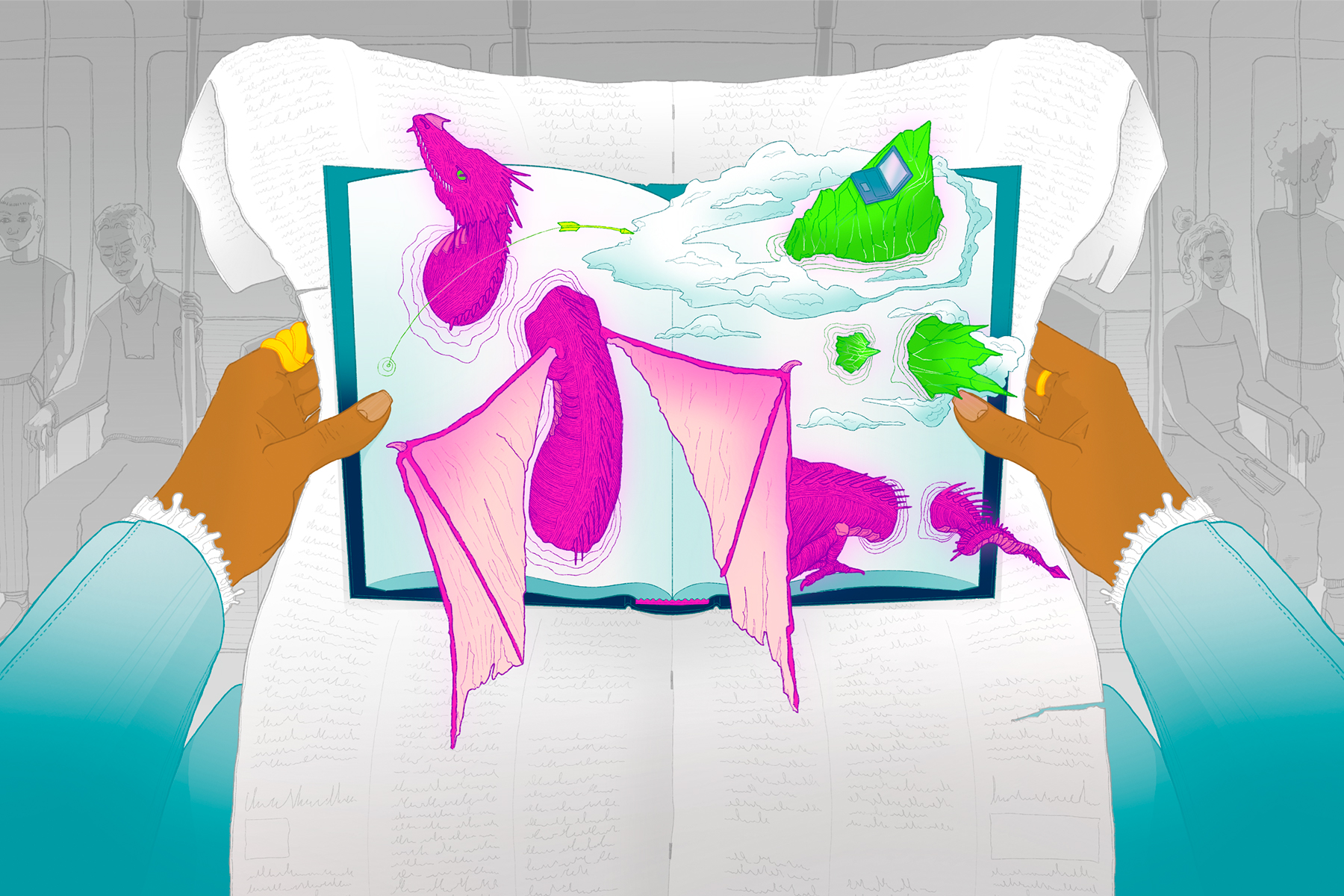
- Home |
- Search Results |
- I’m an adult who reads Young Adult fiction – here’s why you should, too
My name is Amy Jones. I’m 29 years old, a mother, an author, a responsible pet owner, a Radio 3 listener, a generally functioning grown-up – and I love reading Young Adult fiction.
It started by accident, when I picked up The Hunger Games because everybody was talking about it and got hooked. It was just so fast-paced. So enjoyable. It took me out of my own head in a way nothing else did.
I truly believed it was just going to be a one-time fling, but then I kept seeing what looked like myself in the laptop-tapping woman on the cover of Fangirl, a coming-of-age YA novel about twin sisters. After that I read The Fault in Our Stars before the film adaptation came out.
With each book, YA became harder to resist. Eventually my obsession got so bad that my husband found me in the kitchen, stirring a risotto with one hand and reading Silence Is Goldfish, Annabel Pitcher's story of a girl who turns mute from rage, with the other.
Like the teenagers it depicts, YA’s biggest problem is that it is misunderstood
I may sound like a member of a YA Anonymous meeting, but in the current literary climate, to enjoy the genre as a grown-up feels like something that needs confessing. While many people adore YA, there is a certain pocket of the book world which likes to try and dismiss it as overblown, riddled with cliché and certainly not suitable for serious-minded adults. Sometimes it is presented as the literary equivalent of One Direction or Taylor Swift: too big and too successful to be taken seriously.
In truth, like the teenagers it depicts, YA’s biggest problem is that it is misunderstood. There are certainly some familiar tropes, but then again most literary genres wouldn’t exist without clichés. Romance plays a considerable part in many YA narrative, but not every YA book is full of love-triangles, tortured looks and inexplicably bad dialogue. It’s true that supernatural creatures proliferate, along with troubled teens saving the world, but often, YA just takes an ordinary person in an ordinary situation and writes about them in a thoughtful and beautiful way.
Illustration at top: Flynn Shore / Penguin